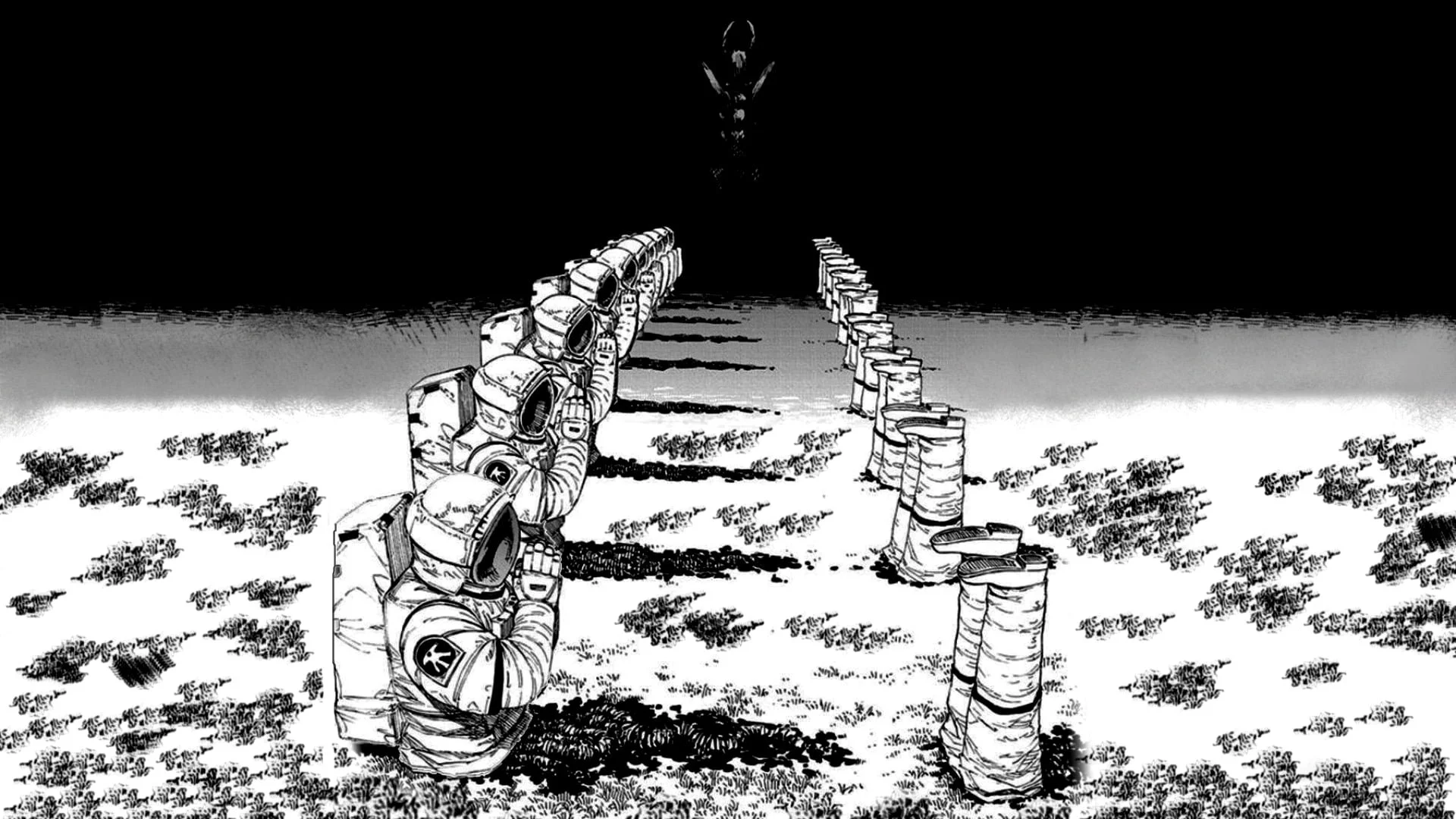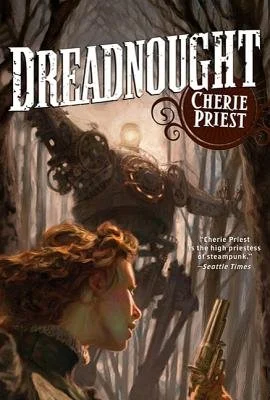Cameron's Book Round-Up, October and Early November 2023
I have a bad habit of letting these sit too long. The links go to bookshop, but maybe consider donating to something that might help deal with the human suffering and ongoing ethnic cleansing in Palestine before grabbing one of these.
※
Land: How the Hunger for Ownership Shaped the Modern World by Simon Winchester.
I was hoping that this book would be a mammoth historical overview of an often-overlooked aspect of how societies function, much like Graeber’s Debt. It was fine enough as far as it goes, but it didn’t quite deliver on that promise. Winchester is very much locked in to the liberal end of the political center, and this necessarily constrains his imagination.
The central thesis of the book — that conflicts are usually and fundamentally about land — seemed to be under-supported, and his tone waxed nostalgic in a way that didn’t seem entirely appropriate at points. The book could have been interesting, but I feel that Winchester simply didn’t push far enough on it.
There were some interesting historical bits, but it was poorly served by the thesis, which didn’t seem to be entirely supportable by the available information — the ownership and access to land clearly drove many historical conflicts, but I’m not sure it’s tenable at the moment.
The Nineties: A Book by Chuck Klosterman.
There was a time, from about 2008 to 2013, when Chuck Klosterman was spoken of with a reverence normally reserved for the most trenchant social critics, at least in the circles that I ran in. To be completely honest, this made me avoid him: after all, the level of praise he received couldn’t possibly be borne out by his work. With that in mind, I’m glad I waited for this book to begin my examination of his work. He couldn’t have lived up to it then, but I think I like his work more than enough now, if that makes sense.
This book is exactly what it claims to be — an examination of the cultural landscape of the 1990s. Most people will trace that from the fall of the Berlin Wall to the fall of the Twin Towers. Klosterman pegs the start to the release of Nirvana’s Nevermind, which gives a great deal of information about how the book is going to be constructed: it’s about what the nineties meant in American culture. Through the book he examines not just Grunge, but also Gangsta Rap, video rental stores, Ross Perot, Pauly Shore, Douglas Coupland’s Generation X: Tales from and Accelerated Culture and the concept of Selling Out.
It’s a constellation of ideas that I think need to be examined. Not necessarily because it’s of world-shaking importance, but also because of what it leaves out. What happened but simply didn’t impact the zeitgeist — the amount of attention lavished on the First Gulf War is interesting, but it becomes absolutely fascinating with the relative non-impact of the Bosnian Genocide.
I would recommend this book, with the caveat that it’s sort of like hanging out with, and getting the most insightful commentary possible from, a Gen-X coworker who spent all of yesterday lamenting the fact that you can’t smoke in Denny’s anymore. It may be somewhat trivial, but there are flashes of real insight nested within it, and on reflection, the trivialities feed into those insights.
Radicalized: Four Tales of Our Present Moment by Cory Doctorow.
A solid little collection of short stories. I happen to think that Doctorow probably thrives at the short story length, packing in a novella’s worth of material into something that is much leaner and tighter. As time goes on, I’m beginning to see the short story as its own genre, as different from the novel as poetry is — which means that the insistence that it’s just a novel in miniature (and that prospective novelists need to publish short stories for consideration from major publishers) becomes more and more ridiculous.
The best of the lot, in my opinion, is the first one, “Unauthorized Bread”, about the virtues of jailbreaking household appliances, set against the backdrop of a cyberpunk dystopia that, frankly, doesn’t feel that far off. The title story, though, is the one that really sticks with me — “Radicalized” is about Americans becoming radicalized into a decentralized campaigns against health insurance companies because of denials of service.
It’s honestly something that I’m surprised hasn’t happened yet — which seems to be a great trait in a science fiction story, though, obviously, there is a certain amount of horror to it.
Of the other two stories, “Model Minority” is a superhero pastiche that didn’t quite land for me, and “Masque of the Red Death” is an update of the Poe short story after Douglas Rushkoff’s famous talk with a passel of tech billionaires. That last one landed a bit better, but I can’t help but think there were more interesting stories happening the next town over from it.
They just don’t make covers like this anymore.
Destination: Void by Frank Herbert.
The prequel to Frank Herbert and poet Bill Ransom’s Pandora sequence, which I’ve read two of before I started writing these reviews — which I will probably reread at some point.
The movie Alien really changed science fiction horror in a profound way. I can appreciate this more now that I’ve read Destination: Void, which is a work of science fiction horror from before Ridley Scott introduced us to his vision. Instead of being working class stiffs just trying to make it home after answering a distress call, our heroes here are clones monitoring the progress of a colony ship. It’s suffered horrible system malfunctions just as it’s too late for them to turn around, and they’re left with a daunting task: to construct an artificial consciousness to manage the project so that the mission can continue.
Except it’s all been engineered that way by the project leads back on Earth. The clones have been conditioned to have the right personalities, the right mix of abilities, and the failures have been perfectly timed to happen at just the right instant.
A group of people are intentionally pushed past the brink and given an impossible task, in the hope that their desperation will lead to the impossible being made possible.
It’s a solid read, though given over to the same sort of philosophizing that Herbert made famous in Dune.
The Earth Transformed: An Untold History by Peter Frankopan.
(Previously mentioned here.)
A real solid book, especially after the slight disappointment of Land. Frankopan examines how fluctuations in the climate effect the course of human history. While he stresses that climate is never the determining factor, we can’t exactly rule it out as a contributing factor in a number of key historical moments, such as the Bronze Age collapse or the emergence of Genghis Khan. Human agency definitely played a role in these events, but climate fluctuations prepared the stage.
This, of course, leads to the question of our current moment: Frankopan refuses to offer any absolute predictions, though it becomes clear from reading it that a chaotic era is on the horizon for us.
My prior treatment of this book is largely from the perspective of how it might be used to help determine things for someone engaging in world building for a fantasy story, but I think that — for other purposes — it’s still a fairly solid book.
The Dead Take the A Train, by Cassandra Khaw and Richard Kadrey.
I’ve generally steered clear of Richard Kadrey’s work for reasons related to by dislike of both Supernatural and Manly Wade Wellman’s Silver John stories. There are certain genre conventions connected to the long-running hunter of the supernatural character type that bug me: namely, that someone has always heard of the character and is always impressed by them. Which means, fundamentally, that instead of showing you that the character is a force to be reckoned with, you are often told that the character is a force to be reckoned with.
Admittedly, the story begins with our heroine, Julie Crews, killing an octopus demon that crashed a bachelorette party and getting stiffed by her employer before heading back to her apartment, provided on the graces of the small goddess of rent control to consume substances. The narrative then cuts to her ex-boyfriend, Tyler, a sleazy employee of a supernatural law firm — except that, in this world, high finance and corporate law is always in hoc to eldritch forces from outside the mortal universe. The two are set on a collision course, and it’s testament to the authors’ skill that this high-energy mixture remains readable and charismatic throughout.
I’m not sure this is going to make me pick up (and enjoy) Kadrey’s other work, but it does feel like an excellent exploration of a set of aesthetic ideas that I might treat at a later point in time — the distinction between something designed to be “cool” and something designed to be “good” in a more traditional sense.
Hell Followed with Us, by Andrew Joseph White
(Reviewed by Edgar here.)
I’ll be honest, this is one of the most Edgar things I’ve read written by someone not them. The story is that of a post-pandemic, body-horror United States, where an ecofascist Christian Dominionist cult has decided to cull those not of their sect. In this ruined world, the transmasculine son of the cult’s leader escapes with the help of his (much more accepting) father, and is taken in by a colony of queer youth who mount guerilla resistance against the Dominionists, trading proof of their kills to a more traditional prepper community for supplies.
But our hero, Benji, has a secret, as all such YA protagonists must: he’s been infected with a version of the world-killing virus that will gradually transform him into its ultimate manifestation: the monstrous “Seraph” that can command those infected with its mind. This leads to some rather darkly amusing moments where members of the ecofascist Christian Dominionist cult will insist on misgendering the protagonist while he is sloughing of his skin and growing wings — even when they take away his humanity, they insist that he can’t use whatever pronouns he wants. Which is exactly the kind of silly that I could see happening in that extremely hypothetical situation.
I highly recommend it.
Chainsaw Man, trade paperbacks 6, 7, 8, 9, and 10 by Tatsuki Fujimoto.
(first five volumes reviewed here.)
I’ve read a fair amount of Japanese fiction and consumed a fair amount of anime and manga. Recently, I’ve even added some theory written by Japanese scholars to the mix. It’s fairly obvious that Chainsaw Man is an intensely postmodern work, in conversation with earlier works, such as Devilman and various henshin characters. However, it exists as (paradoxically, perhaps, for those who have read it) as a maturation and elaboration on the various constituent genres that’s quite fascinating to examine.
Which is an incredibly pretentious thing to write about a comic book where the lead character regularly swaps out his human head for a chainsaw.
Fujimoto is an incredibly talented writer and artist — honestly, I don’t know how mangaka keep up with the schedule their work requires — and a master of the gut punch, as the last three volumes of this sequence show. The fact that Fujimoto achieves this without it becoming unbearable is a testament to his skill.
I won’t spoil anything here — as I must in the next review — but I will say that it manages to be darker than a number of other series that feature the death of the whole human race. Fujimoto manages to pull heartbreaking pathos out of every moment, without compromising the horror or the humor, which is an incredible feat.
Dreadnought: A Novel of the Clockwork Century, by Cherie Priest.
Note: this review spoils the novel somewhat. Please be aware.
There was a very strange period in the Aughts — bracketed on the front end by 2002’s television series Firefly and on the back end, with this book (released 2010), when it was considered acceptable to have sympathy for the Confederate States of America. Priest does a good job of presenting an alternate universe where the conflict was actually about state’s rights — it’s just that, to do so, she needs to draw a universe where equally improbable things, like Victorian-era airships, giant robots, and zombies are also present.
In its execution, this novel — the sequel to 2009’s Boneshaker — is quite competent. The central character is a confederate nurse, Mercy Lynch, who was recently widowed by the death of her husband, who in turn had been a Yankee soldier. She leaves her position in a prestigious Virginia hospital upon receiving a telegram about the death of her absentee father, bidding her to come see him in Seattle. Thus begins a journey of several thousand miles through contested territory, by airship, steamboat, and finally — semi-secretly — aboard the Union train Dreadnought, a war asset engaged in a secret mission and using passengers as a fig leaf to slip away from the fighting. Along the way, Lynch is embroiled in a certain amount of intrigue and struggles simply to survive.
It’s a novel that is both competent and very much of its time, which is recent enough that it leaves a certain amount of bad taste in one’s mouth. Priest does a good job — it’s just that there are certain elements of the job that are no longer really tenable. Beyond just sympathy for the confederacy, there is also the issue a large number of zombified Mexicans appearing on the page. While I don’t think that Priest has reactionary politics, post-2016 it’s not really a good look. It’s been a long time since I read it, but I would be much more comfortable recommending Boneshaker to people than this book.
The Subprimes, by Karl Taro Greenfeld.
And here we finish, with a book that was generally okay. Greenfield put out this novel in 2015, and — I’ll be honest — it could only have been published in about a six month stretch at the start of that year, before the election discourse got really ramped up and we entered the latter half of that decade. In that sense, it’s almost a perfect time capsule of a world that existed for only a short time: the housing crisis loomed large in everyone’s mind, the war on terror wasn’t real anymore, and the late-tens culture war hadn’t yet boiled over entirely.
There are several throughlines in the book. One concerns the motorcycle-riding Sargam, a woman who lacks a credit score on a mission to spread her simple message, that the solution lies in “people helping people.” There’s a family that encounters her several times as they live a sort of reverse grapes-of-wrath life, and who exist to show the tragedies for normal people. There’s Arthur Mack, a notoriously stupid hedge fund manager who stole billions from his clients by selling Carbon Credit Credit Default Swap Swaps or something to that effect, who is plucked from prison by Pastor Roger, a thinly veiled Joel Osteen type. There’s Arthur’s soon-to-be-ex-wife Gemma, who took their children and fled New York to California, where she now stays with her chainsmoking mother. There’s Richie Schwab, who’s sort of like the Dennis Leary character from Demolition Man softened a bit and made into a journalist who is writing about Gemma, and whose son is placed into a variety of after-school programs to deal with sexual harassment (touching a classmate’s butt) and violence (threatening another student with a comb.)
The book is ostensibly a satire — though I’m not going to hinge my critique on how funny or not funny it was. Instead, I’m going to just state that its concerns, while not banished in the watery light of the end of 2023, no longer seem as all-consuming these days. People still can’t afford homes, the world is still getting hotter, megachurch pastors continue to wield too much power, the state continues to privatize too much of its functions by farming it out to substandard contractors, and we continue to work to make all of this work. That much is still true. However, Greenfeld’s book is almost more notable for what it misses, rather than what it treats. There’s no handling of fascism, a looming threat in 2015. There’s no acknowledgement of the nascent resurgence of anti-queer stances. The conflict is portrayed as something that can be solved by one group taking a stand once.
I’ll be honest, in many ways, it covers much of the same territory as Radicalized, but it does so in a way that feels somewhat less deft. Perhaps it would work better for someone else, but it doesn’t really work for me.
※
If you enjoyed reading this, consider following our writing staff on Bluesky, where you can find Cameron and Edgar. Just in case you didn’t know, we also have a Facebook fan page, which you can follow if you’d like regular updates and a bookshop where you can buy the books we review and reference (while supporting a coalition of local bookshops all over the United States.) We are also restarting our Tumblr, which you can follow here.










